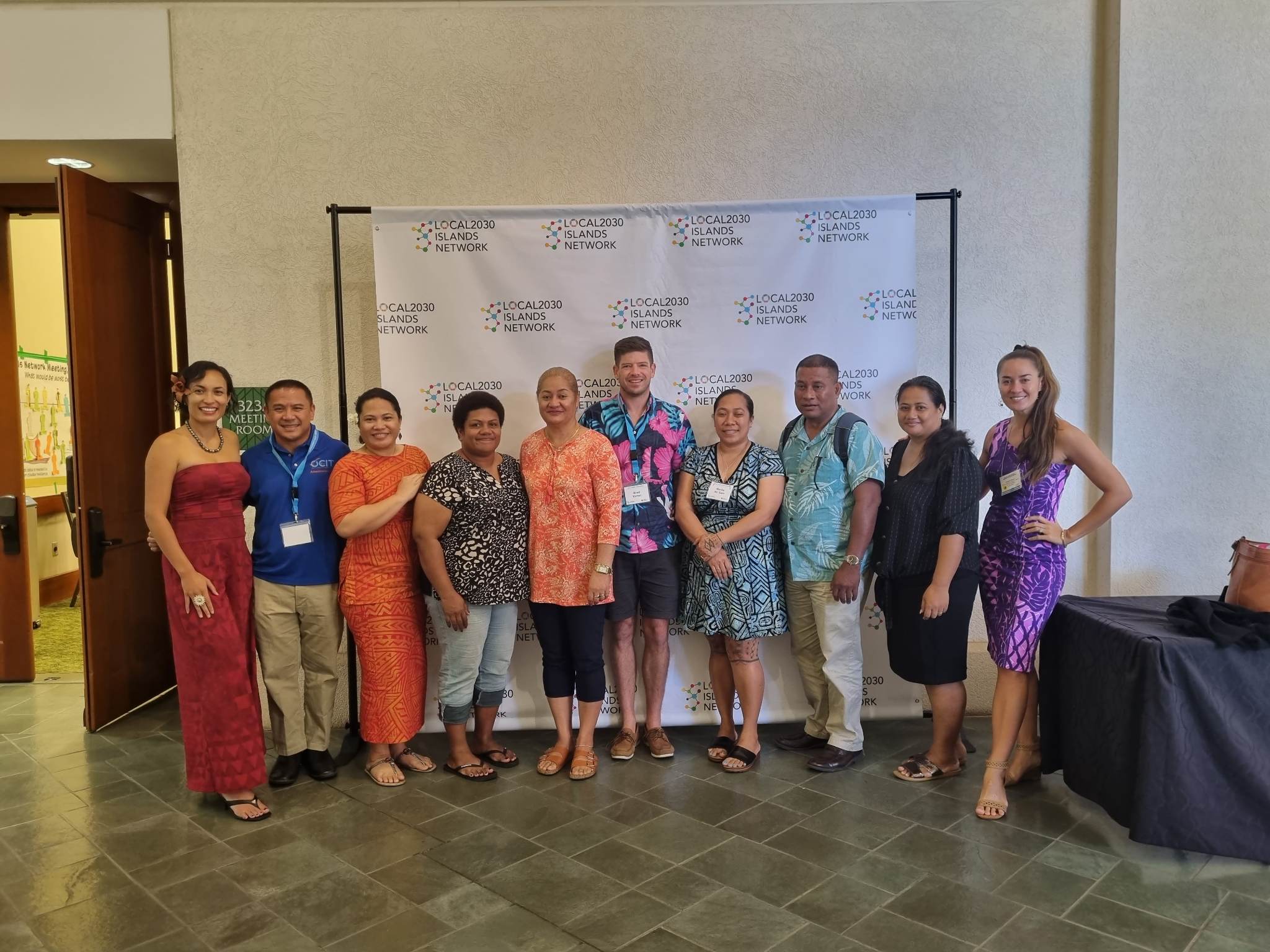Te Ipukarea Society : Regenerative tourism – turning this new concept into reality
Saturday 8 April 2023 | Written by Te Ipukarea Society | Published in Environment, National

Pacific Island participants at the regenerative tourism workshop in Hawaii. Te Ipukarea Society member and former Sustainable Tourism Manager at Cook Islands Tourism, Sieni Tiraa is far left. SUPPLIED/23040609
The concept of Sustainable Tourism has been at the forefront of strategic and operational planning for decades. However the emerging paradigm shift is towards regenerative tourism.
Sieni Tiraa, a member of Te Ipukarea Society and former Sustainable Tourism Manager at Cook Islands Tourism, attended the very first in-person meeting of the Local2030 islands network’s Sustainable and Regenerative Tourism community of practice (CoP) in Hawaii from April 2-6.
This was hosted by the Local2030 islands network in partnership with the United States National Oceanic and Atmospheric Administration (NOAA).
The data for Climate Resilience CoP and the Pacific Risk Management Ohana (PRIMO) conference also ran in conjunction to the tourism meetings.
During the opening session, experts in the field of tourism, Dianne Dredge and Pauline Sheldon, shared that sustainable tourism sustains the status quo whereas regenerative tourism gives back more than it takes.
Another distinction included sustainable tourism merely responding to industry needs, with regenerative tourism being more holistic in scope, responding to needs of living systems such as nature, culture and community.
Tiraa said: “As this was my first time in Hawaii, it was an eye opener for me to see the impacts of mass tourism particularly centered in areas such as Waikiki beach. This was confronting for me as it highlighted that, if we aren’t careful, this could be our little paradise in future.”
“If increasing the number of visitor arrivals continues to be the focus, as was the case for Hawaii, we could be in real trouble in future.
“The revelation of these meetings for me was that the concept of regenerative tourism is inherent in who we are as Māori people. If we stay true to our cultural values that are collective in nature, then we are in essence living this relatively new concept that is part and parcel of our livelihoods.”
The diverse topics covered over the five days included shifting economic focus in tourism to being regenerative. That is, balancing tourism and the well-being of communities and the natural environment, managing visitor use of natural, cultural and historic places and many other important topics. It offered an opportunity for members from islands from the Pacific, the Caribbean, South America and Africa for peer to peer island exchanges to engage and support common objectives that fast-track sustainable tourism in support of island resilience goals.
These connections, sharing and engagement with different island nations was referred to as community of practice (CoP). The CoP was a relatively new concept for most participants and involved an interactive and dynamic member-driven network and process for people who come together to learn and support individual and group goals.
The CoP sessions highlighted the progressive and innovative work that is being done in different islands such as Hawaii which encompasses cultural elements into their brand through Malama Hawaii. Also, the Aloha plus challenge which is a state-wide commitment to achieve Hawaii’s sustainability goals and is measured on the Aloha + challenge dashboard.
Another example included the carbon footprint calculator that was developed in Palau to measure the carbon emissions generated from each traveller to calculate the cost that is needed to offset their carbon footprint.
“A common theme throughout the entire session was that environment, culture and tourism need to coexist in a harmonious way that considers the real impacts of climate change” said Tiraa.
David Panuelo, the president of the Federated States of Micronesia, provided an inspiring opening for the PRIMO conference by sharing that there is enormous value in being mindful and collective in nature and that if we had kindness and empathy embedded into policy than we would go a long way.
In closing, Panuelo stated, “Let us take action today for the Pacific’s resilience tomorrow.”
Progressing regenerative tourism from concept to reality is a key part of the ecologically sustainable development portfolio of Te Ipukarea Society. Perhaps this portfolio should be renamed as ecologically regenerative development!














































